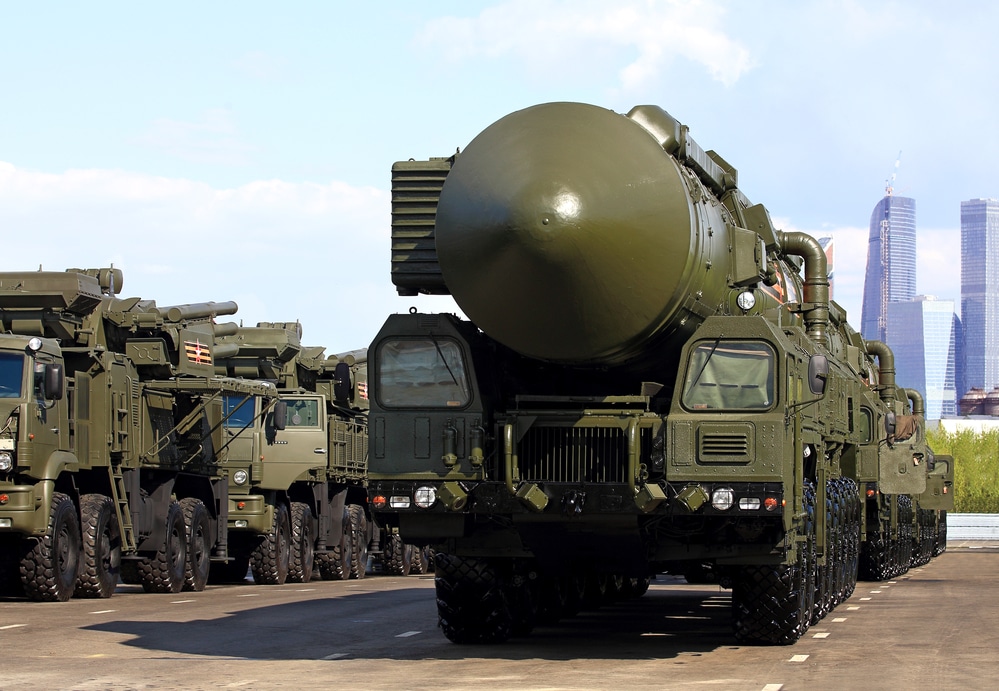During the Cold War, world populations faced the ongoing nightmare of a nuclear attack coming out of the blue. All it would have taken was one miscalculation by either side. Such a trigger could even have taken the form of a false alert. We know that at least one such incident nearly led to catastrophe.
In 1983, the Soviet Union’s alert system indicated that there were incoming missiles on their way. Fortunately, the alert commander ordered a double check to be sure the indications of a missile launch from NATO were genuine. That check confirmed that the alert was erroneous. Given the dire state of East/West tensions, World War III would have at the time been almost certain if the commander had not been extra cautious.
The end of the Cold War ended the prospect of such a nightmare scenario. Unfortunately, Bill Clinton’s administration “found new causes to promote using American power, a fixation that would lead to serial campaigns of intervention and social engineering.” U.S. leaders, especially Secretary of State Madeline Albright, went out of their way to demonstrate Russia’s impotence publicly. In particular, they humiliated Russia’s Serbian clients both in Bosnia and in Serbia itself. Washington’s treatment of the Serbs caused renewed East/West tensions and began to generate a second Cold War.
Even more directly, the United States and its principal European allies provoked Russia with multiple rounds of NATO expansion. In April 1998, NATO admitted Poland, Czechoslovakia, and Hungary over Russia’s vehement objections. Expansion continued under both George W. Bush and Barack Obama. The result was a steady increase in military tensions. In addition to provoking Russia by mistreating its Serbian clients, Washington expanded NATO eastward, creating a threat within Russia’s core security zone.
There were multiple rounds of eastward expansion involving Bill Clinton, George W. Bush, and Barack Obama. The mythology has also developed that Donald Trump was soft on policy toward Russia, if not an outright traitor. The reality was the opposite. U.S. policy towards Russia hardened significantly under Trump. That point was most obvious with regard to Trump’s attitude towards crucial arms control agreements.
Under Trump, the United States had adopted several measures that again raised the extent of tension. An especially unhelpful action took place during Trump’s administration when hawkish U.S. officials decided that the United States should withdraw from the Intermediate-Range Nuclear Forces Treaty in August 2019. Such intermediate range missiles had always been Russia’s Achilles’ heel and Russian leaders were hypersensitive about their country being at a disadvantage with respect to such weapons. Threatening to withdraw from that agreement was extremely unhelpful. The situation worsened when Washington followed up by deciding to withdraw from the Open Skies Treaty in November 2020.
As Western-Russian relations deteriorated further, Russian President Vladimir Putin put Russia’s nuclear forces on higher alert in February 2022 following the advance of Russian forces deeper into Ukraine. Later in the year, relations became even more confrontational. As The New York Times reports, “architecture of disarmament and nonproliferation is now gradually being dismantled. On [November, 2023] President Vladimir V. Putin signed a law revoking Russia’s ratification of the global treaty banning nuclear testing. In pushing through the de-ratification, Putin said that he wanted to ‘mirror’ the American position. Although the United States signed the treaty in 1996, it has never been ratified. Since the United States has never ratified the treaty, Russia’s move was more symbolic than practical. But it leaves only one significant nuclear weapons pact between Russia and the United States in place: the New START treaty.” If Russia further weakens its commitment to the test ban, that will create yet another arena for instability.
It is sobering to consider the state of global nuclear arms control today to what it was at the end of the Cold War. It is alarming that Moscow and Washington have returned to the state of nuclear rivalry and confrontation in less than a quarter century. An unparalleled opportunity for peace has been wasted.

































